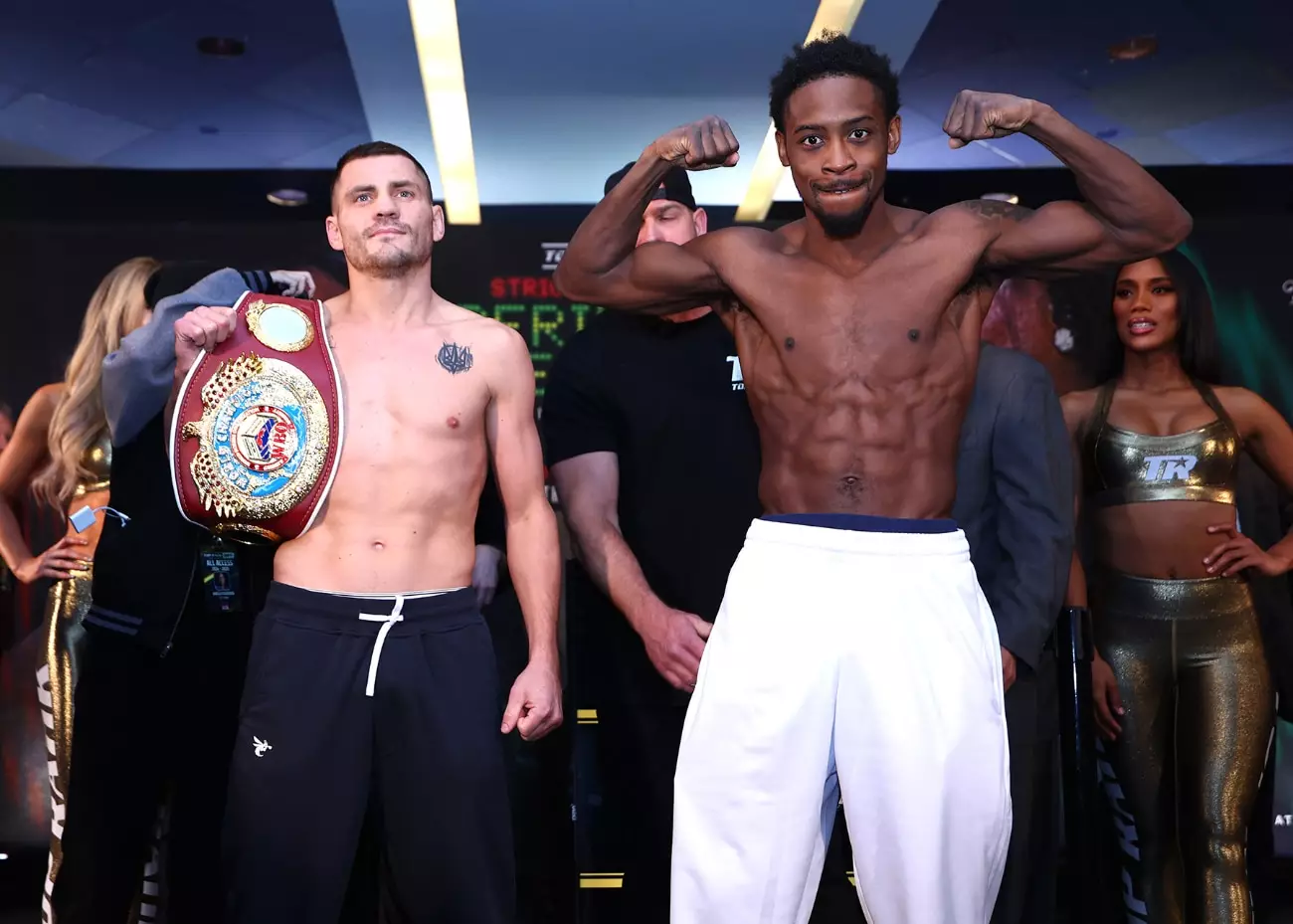The boxing world is no stranger to rivalries and controversies, but the recent exchange between Keyshawn Davis and Teofimo Lopez has raised eyebrows for both its personal nature and the implications it carries for their respective careers. Davis, a rising contender in the lightweight division, has made headlines by publicly stating that he will not fight Lopez, primarily due to an offensive prank involving fruit that Lopez allegedly orchestrated. This situation unfolds against the backdrop of Lopez’s financial troubles and the quest for significant fights.
Davis claims that Lopez sent a box filled with bananas and watermelons to his room, an act he described as racially insensitive and derogatory. The implication here is significant. By framing Lopez as a “racist,” Davis not only escalates their personal conflict but also alerts the boxing community to deeper issues that extend beyond the ring. Such accusations can tarnish reputations and impact future opportunities, both for the accused and the accuser. Davis further indicated that he believes Lopez is facing financial difficulties, suggesting that the former champion lacks significant high-stakes fights on his horizon.
In light of these events, Davis appears to be positioning himself as a fighter who stands against racism and discriminatory behavior. He stated, “I ain’t helping you out,” making it clear that he perceives the fight as an endorsement of Lopez’s actions, which he finds unacceptable. This self-declared moral stance is commendable, yet it brings into question the effectiveness of such a bold declaration within the highly competitive landscape of professional boxing.
Davis’s refusal to engage in a bout with Lopez is not just about principles—it’s also strategic. Lopez, despite his talent, is seen as struggling to regain his former prominence in the sport. Davis believes that Lopez’s proposed fights are not significant enough, indicating a potential lack of marketability. This raises an interesting point about how fighters must navigate their careers: they cannot just fight anyone; they have to pick opponents who will elevate their status and finance.
Should Davis suffer a defeat against Denys Berinchyk, the WBO lightweight champion, he may find that his options become limited, making a matchup with Lopez far more compelling, both from a financial and reputational standpoint. The boxing industry can be unforgiving, and a lost fight might compel Davis to reconsider previously held positions. “If I lose, I’ll need to rethink,” he suggests subtly, hinting at the precarious balance fighters must maintain between ideals and career realities.
In today’s digital age, social media serves as both a platform for personal expression and a battleground for controversies. Davis’s statements about Lopez and his actions have been shared and amplified through various channels, exemplifying how much the sport has evolved to include informal yet impactful communication. His remarks not only serve to rally his fans but also set the tone for public perception of Lopez.
Social media can often magnify disputes, leading to fed-up discussions and potential fan fallout. Fighters like Davis must navigate this landscape carefully; their words can cement a legacy or destroy a reputational foundation built over years. Given how quickly narratives can evolve, what begins as an off-the-cuff insult can escalate into a conundrum that has lasting consequences.
As both Keyshawn Davis and Teofimo Lopez navigate their careers, this latest drama could have significant implications for their future. Davis’s continued condemnation of Lopez’s actions paints him as a fighter with principles, but it could also reflect naivety in a sport where rivalries build pay-per-view numbers. Conversely, Lopez’s desperate push for relevance amid financial struggles creates a narrative almost more pitiable than competitive.
Ultimately, whether they end up fighting one another or continuing their paths separately, the boxing world will watch closely. It is the blending of personal values, financial considerations, and competitive spirits that makes boxing unique. The journey ahead for both individuals shines a light on broader themes in sports—issues of integrity, strategy, and the economic realities many athletes face.

